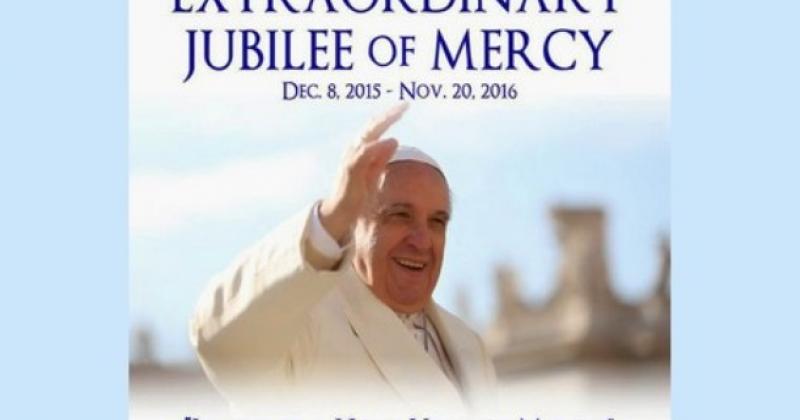This year, the Solemnity of the Immaculate Conception marks the beginning of the Extraordinary Jubilee Year of Mercy announced by Pope Francis in a papal bull.
“We need constantly to contemplate the mystery of mercy,” explained the Pope. “Mercy: The word reveals the very mystery of the Most Holy Trinity. Mercy: the ultimate and supreme act by which God comes to meet us. Mercy: the fundamental law that dwells in the heart of every person who looks sincerely into the eyes of his brothers and sisters on the path of life. Mercy: the bridge that connects God and man, opening our hearts to a hope of being loved forever despite our sinfulness.”
With these words, the Holy Father urged all members of the Church to make the jubilee a time to meditate on scriptural accounts of the Lord’s mercy, to receive the sacrament of confession, to welcome those on the margins of society and to offer forgiveness within our own families and communities. Yet as we prepare for this year, it is worth reflecting on the Church’s distinctive teaching on mercy. Pope Francis’ own words echo an understanding of mercy as a divine action, which elicits a deep response of gratitude in those who accept the Lord’s forgiveness: “Forgive us our trespasses as we forgive those who trespass against us.”
We forgive because we have been forgiven. Our reciprocity is fostered by a renewed awareness of our own human fallibility and sinfulness. Pope Francis’ own story of deep conversion in response to a life-changing experience in the confessional points us toward the path of humility. His papal motto echoes this insight: Miserando atque eligendo (“Lowly and also chosen”).
Over the past year, as the faithful have followed an intense and sometimes confusing debate over proposed changes to Church discipline on marriage, we have heard a good deal about “mercy,” sometimes without precise definitions of what mercy means. In news headlines, mercy has become a placeholder for proposed changes to Church discipline. Indeed, through the lens of the secular media, “mercy” is treated as a synonym for “tolerance,” understood as a value-neutral acceptance of diverse moral choices and lifestyles. This understanding of mercy assumes no prior acknowledgment of our sinfulness and the consequent need for forgiveness and conversion. Yet absent sin, there is no need for mercy. Why do we need to ponder the truth about mercy? As the Second Vatican Council Fathers warned in Gaudium et Spes 50 years ago, modern times reflect the “dichotomy of a world that is at once powerful and weak, capable of doing what is noble and what is base, disposed to freedom and slavery, progress and decline, brotherhood and hatred. Man is growing conscious that the forces he has unleashed are in his own hands and that it is up to him to control them or be enslaved by them.”
St. John Paul II cited this passage in his 1980 encyclical Dives in Misericordia. There, he warned that modern man was becoming less merciful, even as his powers, aided by science and technology, increased.
John Paul lived through the rise of brutal totalitarian regimes that killed millions, only to witness democratic leaders embrace abortion and euthanasia as a “merciful” response to human suffering. He urged the faithful and all people of goodwill to rediscover the true meaning of mercy and resist the logic of moral relativism that produced an ersatz version of mercy that allowed the powerful to impose their wills on the weak.
More than three decades later, we have seen the Pope’s prophetic words fulfilled in the advance of physician-assisted suicide, which is presented as a “compassionate choice” for the terminally ill, but also introduces a counterfeit version of mercy that requires little from the healthy.
